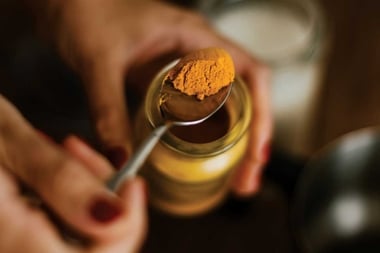Keep Your Family Virus Free

A lot has changed since the term “chief cook and bottle washer” was first coined in the 1800s to describe “the person in charge of practically everything.” Does this describe your position at home? To your many duties as the chief cook and bottle washer, you may also find yourself in the role of chief medical officer (CMO), at least as far as your family is concerned. Here are some of the strategies I’ve used over the last few decades as a health care practitioner that might help you in your role as household CMO.
Plan ahead
Whether you’re a family of one, have a significant other, or a house full of kids, if you’re the CMO in your home, you need to have a plan. In the past, we relied on our doctor or natural health practitioner for almost everything we need.
While it’s still important to consult medical professionals, particularly in emergency situations, the pressure on our health care system and supply chains may restrict our access, making it important to have greater autonomy over our health and the health of our family.
Don’t wait until sickness hits to stock up on natural medicines and health-supporting foods such as whole grains and beans, or freeze or ferment fresh foods from the harvest that help to keep your family healthy.
Practise prevention
The old adage that an ounce of prevention is worth a pound of cure is true when it comes to handling seasonal viral threats. Few people would argue that the best way to beat a virus is to prevent getting it in the first place.
We all know we need to eat a healthy diet, exercise, get outside for fresh air, and reduce stress (or at least find healthy ways to lessen its effects), but it’s important to implement these prevention strategies. It’s also important to encourage these lifestyles without enforcing them like a drill sergeant, which is likely to create more stress among family members.
Get informed
Most of us hit the internet or watch/read the news to get informed about health threats and how to deal with them. While information is readily available, you’ll want to be selective, since every source has its limitations and biases.
Select a wide range of health sources to ensure you’re getting all the information you need. While your preferred newspaper and television reporters may be well-meaning, they may not access sources that report research and news about natural health products, which may account for the paucity of news stories on their effectiveness.
Conversely, there are many self-appointed health experts on the internet who overstate the merits of natural options. Ideally, go straight to the scientific journals; even if you can’t fully comprehend the studies, reading the abstract or conclusions drawn by the scientists may still be helpful.
You’ll find many excellent studies on natural health options that never get mainstream press attention by consulting PubMed, a huge repository of published research studies from around the world—a great place to get started.
Stock your at-home natural medicine cabinet
Having a medicine cabinet stocked with natural products that work to prevent colds, flu, and other viral threats may help keep you and your family members strong against whatever virus is going around. See the chart of “Best antiviral supplements” for suggestions.
Know when you need assistance
While it’s great to be empowered and self-sufficient about your health, any good CMO knows when to turn to other experts. Watch for signs that suggest you should see a doctor, which include but are not limited to
- a high fever
- a fever that lasts for more than a day
- difficulty breathing
- unusual symptoms
- symptoms that are taking longer than normal to resolve
- aggravations of any other health conditions
Taking these measures and becoming more conscientious of our health and that of our family can help us better navigate the future. We need to recognize that a one-size-fits-all approach to health doesn’t work.
Rather than expecting everyone in your household to follow a set of health rules, any good CMO knows that everyone is different, so consider the emotional and physical health needs of each individual.
Unlocking the mysteries of viruses
Researchers at the University of Leeds in the United Kingdom may have unlocked the mystery of how viruses infect cells, which may hold the key to preventing infection at the source.
When a cell becomes infected with a virus, the virus must spread its genetic material to other cells to ensure its survival. To do so, it creates virions, which are newly formed infectious copies of the virus in a protein shell, with a complete copy of the virus’s genetic code found within.
The scientists discovered the complex process by which viruses package their genetic material to create these virions. They believe this new understanding may hold the key to disrupting virion formation in the future, potentially stopping a virus in its tracks.
Additionally, the researchers suggest that viruses do not mutate easily, which reduces the risk that viruses may mutate to render effective treatments ineffective.
Best antiviral supplements
Whether you’re looking to halt a virus as soon as you feel it coming on or reduce the duration of your suffering after you’ve caught whatever nasty virus has been going around, there are many natural antiviral supplements to consider.
| Supplement | Benefits |
| cat’s claw (Uncaria tomentosa) | has demonstrated antiviral activity against multiple viruses in cell studies |
| curcumin (Curcuma longa—compound found in turmeric) | has been shown to reduce the ability of viruses to enter the cells |
| echinacea | supplementation may decrease the duration and severity of acute respiratory tract infections |
| elderberry (Sambucus nigra) | antiviral reputation is reinforced by research demonstrating its effectiveness against the flu |
| epigallocatechin gallate (EGCG—compound found in green tea) | interferes with the viral replication process, resulting in antiviral effects |
| garlic (Allium sativum) | contains organosulphur compounds that enhance immune response and block the ability of viruses to enter the cells |
| oregano oil (Origanum vulgare) | demonstrates antiviral activity against multiple strains of influenza |
| probiotics | have demonstrated beneficial effects in prevention and treatment of many viral infections |
| quercetin | nutrient found in apples, berries, green tea, and onions; research shows quercetin inhibits the ability of a wide range of flu viruses to enter the cells |
| vitamin C (ascorbic acid) | supports and directly stimulates cellular functions of the immune system |
| vitamin D3 (cholecalciferol) | works against viruses in multiple ways, including lowering viral replication rates and reducing inflammatory cytokines |
Mighty magnesium
While it may not be one of the primary antiviral remedies on its own, research shows that adequate levels of magnesium are needed to activate the highly antiviral remedy vitamin D.





